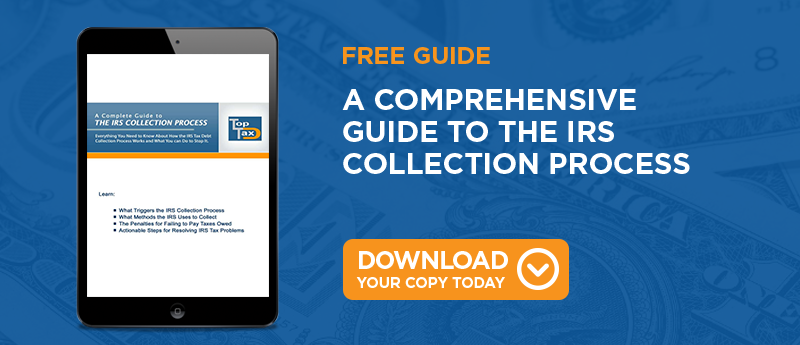Understanding the IRS Tax Collection Process
Owing the IRS money can differ from being indebted to other creditors. Because the IRS is a government agency, it can take action against you without needing a court judgment.
When you owe the IRS money, you would do well to learn more about how it can recoup the balance from you. These facts about its tax collection process can help you act proactively in your own financial and legal best interests.
Written Notification
Despite having a bit more leeway to take action against you, the IRS must notify you about your debt in writing. It cannot call you on the phone, nor will it notify you via email about your obligation.
Instead, the federal government requires that this agency notify you in writing well enough in advance to allow you to pay the debt in entirety if possible. This written notification serves as your official notice that the IRS expects you to resolve this matter promptly.
Timely Response
After you are notified, you have the obligation to respond to the IRS in a timely manner. It would be folly to believe that your debt will go away if you ignore it.
If you receive a letter stating that you owe an unpaid balance, you should contact your local IRS service center or call the IRS directly on its toll-free number. You can then speak with a representative about how to satisfy this obligation without any punishments or penalties being levied against you.
Penalties and Punishments
If you fail to react to the IRS' attempts to notify you of your balance, it can then take action against you without first securing a judgment from a court. Some of the options available to this agency include:
- Wage garnishment: Your wages will be garnished until the debt is paid in entirety.
- Bank levies: The IRS can levy your bank accounts to collect on the balance.
- Asset seizure: Assets like insurance policies, stocks, bonds, automobiles, real estate, and more can be seized to pay off the debt.
- Tax refund lien: Your future tax refunds can be seized until the obligation is met.
Any of these penalties can result in your finances taken a direct hit. Rather than suffer such financial consequences, you can resolve it by making use of one of the repayment options available to you.
Repayment Options
If you are unable to pay the debt in a single payment, you may be eligible for an alternative that will allow you to pay off the obligation without being garnished or having your assets seized. You may, for example, apply for an installment agreement.
An installment agreement with the IRS allows you to make timely payments that reflect your current income. The payments will be set up so that you can afford them without suffering financial hardship. The IRS can even automatically deduct this amount from your bank account each month without you having to call in to make a payment or mailing a check.
You also may apply for an Offer in Compromise, or OIC. This option allows you to pay a lesser amount while still settling the account satisfactorily.
You also may ask the IRS to forgive your debt entirely if you are experiencing undue hardship that is beyond your control. Some of the circumstances that allow the IRS to erase your debt include:
- Death of an immediate family member
- Divorce
- Illness or disability
- Job loss
- Reduction in your income
You have the obligation of proving that you are going through one of these unfortunate events. If the IRS finds that you experienced hardship that prevents you from paying in full or making payments on the debt, it may forgive your balance entirely.
The IRS abides by a precise collection process that permits it to collect on the balance you owe to the federal government. You can escape garnishments, levies, and other punishments by communicating with the IRS and making use of one of the available repayment options.





